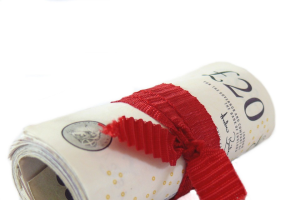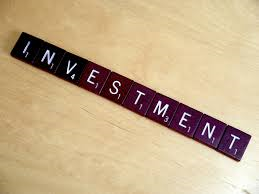Introducing Structured Products
Structured products are fixed term plans, typically of between one and six years, that may attract those seeking higher returns than a deposit account but without being exposed to full stock market risk.
There are two variants – structured deposits and structured investments – where the investor either deposits their capital or loans it to a bank in return for bonuses based upon the performance of an underlying index – often the FTSE 100.
Some products guarantee the return of your capital at maturity, others offer a degree of capital protection; some are covered by the FSCS.
The rules governing structured products are wide and varied, but returns are typically achieved if the FTSE 100 or basket of shares achieves a set level on a particular date.
About Structured Products
Complex – a derivative product whose return depends on the performance of something else, e.g. a stock market index. Choice – structured deposits are cash accounts, structured investments typically track an index such as the FTSE 100. Returns – more popular because of the low interest environment; may be right for investors unhappy with conventional returns not wanting full stock market risk. 3D – deliver defined returns, in defined circumstances on a defined date. Fixed term – usually issued for between one and six years; no return until the end of the period, difficult to redeem/sell beforehand. Fixed terms – returns determined by whether the underlying asset achieves a pre-defined level; higher or lower. Risk – products may be ‘capital protected’ or ‘capital at risk’; risk associated with the underlying investment and the solidity of the issuing ‘counterparty’. Capital protection – structured deposits guarantee the return of your investment. Downside protection – structured investments may limit your losses.
Returns – more popular because of the low interest environment; may be right for investors unhappy with conventional returns not wanting full stock market risk. 3D – deliver defined returns, in defined circumstances on a defined date. Fixed term – usually issued for between one and six years; no return until the end of the period, difficult to redeem/sell beforehand. Fixed terms – returns determined by whether the underlying asset achieves a pre-defined level; higher or lower. Risk – products may be ‘capital protected’ or ‘capital at risk’; risk associated with the underlying investment and the solidity of the issuing ‘counterparty’. Capital protection – structured deposits guarantee the return of your investment. Downside protection – structured investments may limit your losses.
Inside Structured Products
Inside Structured ProductsWhat are Structured Products?What are Structured Deposits?What are Structured Investments?Returns From Structured ProductsAdvantages of Structured ProductsDisadvantages of Structured ProductsRisks of Structured ProductsStructured Products in a Balanced Portfolio
Inside Structured Products
Structured products have become more popular in the low interest environment; they may be the right choice for investors who are unhappy with returns offered by conventional savings accounts, but don’t want to take full stock market risk. Structured products are issued for a fixed period of between one and six years, and returns are typically based upon the performance of an underlying asset such as the FTSE 100. Structured deposits are a type of savings account where your return may be linked to the performance of the index; structured investments are term loans to a bank in exchange for a defined return if the index hits a pre-defined benchmark which may be higher or lower than when the product was issued. Structured products are ‘complex’ instruments and your broker will require that you sign a disclaimer to confirm that you are aware of the risk associated with trading a product that could return less than your initial investment, however the DIY investor may consider it worth spending a little time getting to grips with structured products  as they can combine attractive returns with a high degree of capital protection.
as they can combine attractive returns with a high degree of capital protection.
What are Structured Products?
Structured products have become more popular with UK investors as the low interest environment has seen returns on savings and investments remain at rock bottom; they may be the right choice for investors who are unhappy with returns offered by conventional savings accounts, but don’t want to take full stock market risk. Structured products are ‘complex’ instruments and your broker will require that you sign a disclaimer to confirm that you are aware of the risk associated with trading a product that could return less than your initial investment, however the DIY investor may consider it worth spending a little time getting to grips with structured products as they can combine attractive returns with a high degree of capital protection. Unlike many investments, your profit is not always determined by how much the asset rises, but whether it achieves a pre-defined level, which may be higher or lower than when the product was issued.  Read more
Read more
What are Structured Deposits?
When you buy a structured deposit you agree to tie up your money for a set time – often five or six years – in return for a lump sum at maturity; it is like a cash account, in that it protects the money (capital) you deposit. Structured deposits always return at least the initial amount deposited at the end of the product life. The interest rates you could earn are normally dependent on the level of a share index, such as the FTSE 100, on a particular date. A typical structured deposit will pay you a set interest rate if the FTSE 100, other chosen index or basket of shares reaches or exceeds a particular level.  Read more
Read more
What are Structured Investments?
Unlike a structured deposit where the investor deposits money with the bank, an investor in a structured investment lends money to the bank for the term of the product at the end of which they receive whatever the product pledges to return plus a return of capital, providing certain criteria have been met. The product return is based on a formula, sometimes based on the performance of the prices of individual shares, but more typically on a share price index, such as the FTSE 100. In contrast to structured deposits, structured investments are sometimes often called ‘capital at risk’ or structured capital at risk products – ‘SCARPs’ – because you may lose some of the money you invested; as with structured deposits, the return depends upon the performance of an underlying asset or index.  Read more
Read more
Returns From Structured Products
The rules that govern structured products are many and varied so it is vital that you understand the terms of any product you may be considering before you sign on the dotted; you could be agreeing to tie your money up for up to six years and if you do get it wrong, you may find it difficult to redeem the product or you may be forced to do so at a considerable loss. The return you receive is usually based on the performance of an index, often the FTSE 100, although sometimes plans base their returns on a basket of shares. Deposit and investment based structured products generally pay their returns on one of three ways – ‘kick out’ plans, defined return plans and variable return plans.  Read more
Read more
Advantages of Structured Products
Those new to investing may not be aware of structured products and the fact that their broker may require them to complete a risk disclaimer before they can trade them may set the alarm bells clanging. As with any investment it is important that you fully understand and are entirely comfortable with the risks associated with it and that you take advice where you are in any doubt. However, hereunder are some of the key features of structured products that may suggest them to you as a suitable investment; with such a wide range of different products available it is imperative that you fully understand the rules associated with a particular product before making an investment.  Read more
Read more
Disadvantages of Structured Products
As with any investment it is important that you fully understand, and are entirely comfortable with, the risks associated with structured products and that you take advice where you are in any doubt. Hereunder are some of the things that those unfamiliar with structured products should be mindful of when considering investing; with such a wide range of different products available it is imperative that you fully understand the rules associated with a particular product before making an investment.  Read more
Read more
Risk of Structured Products
When you take out a structured investment it’s not usually the issuing bank or insurance company that promises to return your capital or pay the promised returns; instead it buys complex underlying investments from one or more other institutions, often referred to as ‘counterparties’. Structured products are defined as ‘complex instruments’ because of the rules that dictates how each one behaves, and it is important that you fully understand how a particular product is structured before you tie your money up for a not inconsiderable amount of time. In addition to ‘counterparty risk’ – that the bank or financial institution underwriting the product fails to return your money – there is also ‘market risk’, the danger that a collapse in the market could wipe out your capital.  Read more
Read more
Structured Products in a Balanced Portfolio
It is important that the DIY investor ensures their portfolio is diversified across industry sectors, individual investments and asset classes to ensure that any loss associated with a dramatic change in fortune for one does not do catastrophic damage to their overall wealth. As interest on cash deposits remains stubbornly low and bonds markets are lacklustre, the unusual risk/return profile of structured products may appeal to investors looking for improved returns but with some protection for their capital in all but the direst circumstances; structured products could be considered to offer more risk than cash and less than shares. Structured products could be used to diversify a portfolio where the investor is looking at a time horizon of more than five years, and those less inclined to actively manage their portfolio may take comfort in the fact that a criticism sometimes levelled at structured products is that their fixed terms and fixed term mean that they may lack ‘excitement’.  Read more
Read more

 as they can combine attractive returns with a high degree of capital protection.
as they can combine attractive returns with a high degree of capital protection. 







